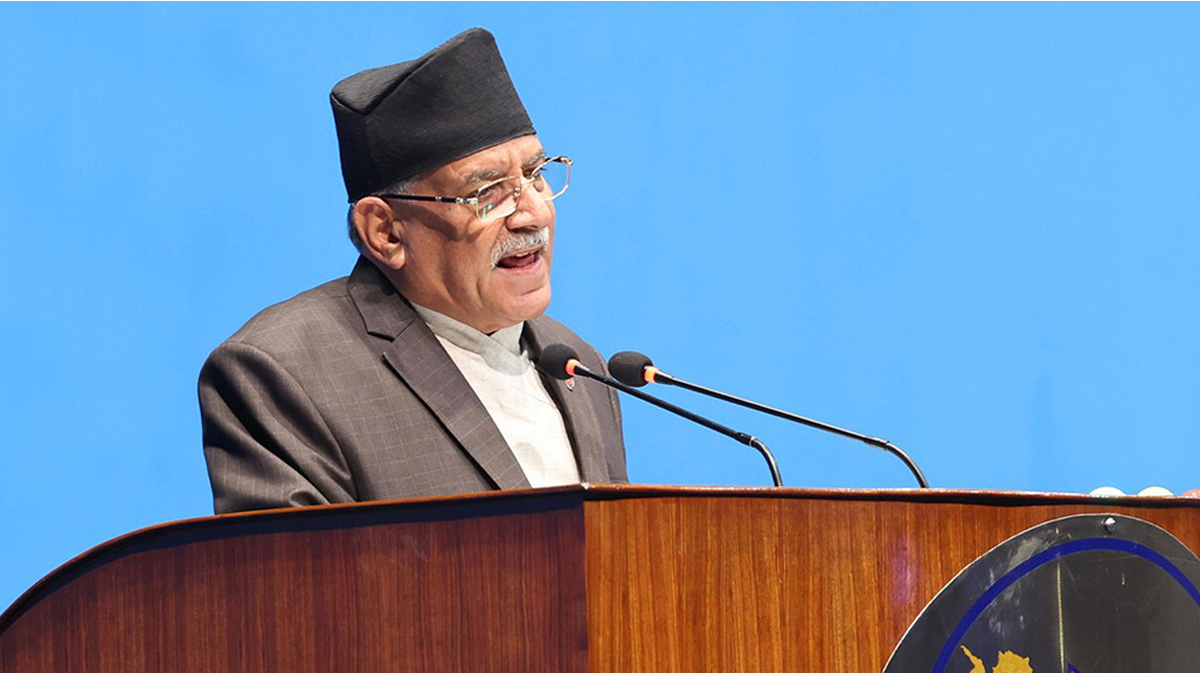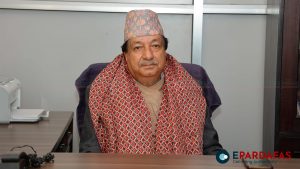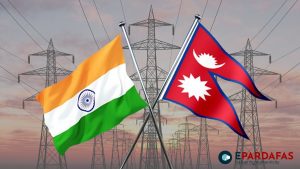
BRI Debate in Parliament: PM Highlights Preference for Grants, Low-interest Loans as Alternative
During the budget discussion in the House of Representatives on Tuesday, the controversial Belt and Road Initiative (BRI) launched by China took center stage.
With Deputy Prime Minister and Foreign Minister Narayankaji Shrestha currently abroad , Prime Minister Pushpa Kamal Dahal ‘Prachanda’ took the floor to address the MPs’ concerns directly. Consequently, a brief debate ensued on the matter between the MPs and Prime Minister Dahal.
First, Rastriya Swatantra Party lawmaker Sishir Khanal raised serious concerns on this. He emphasized that the agreement, which significantly impacts Nepal’s geopolitical landscape, has not been formally discussed in parliament. This lack of transparency, according to Khanal, not only fuels unnecessary speculation but also risks straining Nepal’s bilateral relations with China.
“Honorable Speaker, Nepal signed the BRI framework agreement with neighboring country China in 2017. However, this agreement has not been formally discussed in parliament, leading to unnecessary debate on the matter. Consequently, tensions may arise in our relationship with China,” Khanal stated during the session.
He pressed the Prime Minister for clarity on the government’s plans to provide information and facilitate discussions on the BRI agreement. “On this issue, what has the government considered regarding providing information and facilitating discussion? I would like to know more about this,” Khanal added.
After Khanal, Nepali Congress MP and former minister Prakasharan Mahat also raised this issue, stating, ‘There is talk that an implementation agreement is being made. China’s Vice Foreign Minister has arrived here. We have a huge debt, and it’s getting bigger. On the basis of what kind of support are we implementing BRI? The government has not clarified its stance on this matter. What is the government’s clear opinion on this issue?’ He indicated that the government should exercise caution when taking loans.”
After that, CPN-UML MP Lilanath Shrestha said that the government should quickly proceed with the BRI.
In response, Prime Minister Dahal said that discussions are underway to finalize the BRI project. “The final details are currently being worked out to advance this plan,” he said. “I believe an agreement will be reached soon.”
Prime Minister Dahal also emphasized that Nepal aims to secure grants rather than loans through the BRI.
“Our focus will be on obtaining grants. Whether it is from the ADB or the World Bank, even if we take loans, we will not accept interest rates above 1 or 1.5 percent. However, our main emphasis will be on obtaining grants,” he said.
Prime Minister Dahal asserted that any agreement on BRI implementation would ensure that Nepal does not shoulder an excessive burden of debt.
Nepal and China signed the BRI framework agreement in 2017 and in line with it, China had proposed the implementation plan in early 2020. However, due to differing opinions on how to proceed with the BRI, the signing of this implementation plan has been delayed for four years. Once signed, the implementation plan will set the groundwork for selecting projects, executing them, and determining how they will be financed under the BRI framework.













Comments